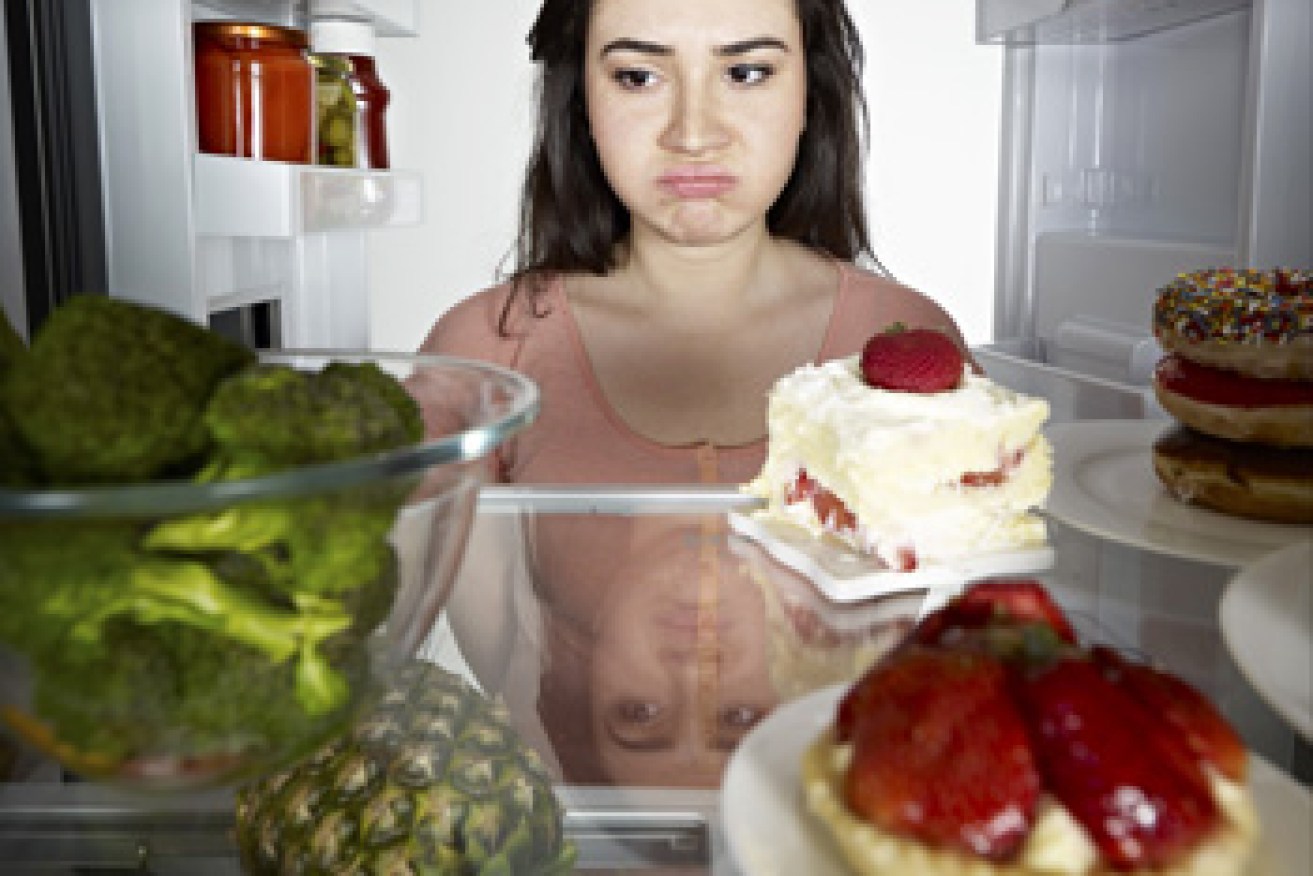I quit sugar and lived to tell the tale


Getty
I used to be afraid to eat too much cheese and was careful not to eat avocado everyday because I thought it was full of fat and I would, naturally, gain weight. Somewhere along the way I had learned that these healthy foods were bad for me.
And yet, I indulged in decadent ice cream or my favourite honeycomb chocolate for a treat. I followed what I thought was a healthy, balanced diet. I never consumed soft drink or energy drinks, I ate snacks labeled ‘low fat’ and exercised moderately. So where was the harm in a little chocolate now and then? Everything in moderation, right?
• Good news: your addiction to coffee could extend your life
• Lying to your doctor: this is why it has to stop
• Stop body shaming because it hurts us all
Then it happened. I watched a documentary called That Sugar Film, most likely while on the couch eating something sugary. It revealed how many large doses of the stuff now lurks in our diets (and my pantry). Unwittingly, while making apparently sensible food choices, I had become a sugar addict. Those ‘treats’ were the tip of a sugar mountain and I was completely oblivious to it.
I had to change my ways. Immediately!

Are all those sugar-laden foods really worth it? Photo: Getty
It is now well-known to most of us that consuming refined sugars and heavily-processed carbohydrates makes us unwell, but I had to dig to find what ‘unwell’ really meant. It reads like the patient list of a hospital ward: Type 2 diabetes, heart disease, obesity, weight gain, tooth decay and sometimes, premature death.
My partner Chris and I didn’t waste that first rush of motivation. We decided to do this together. We stopped eating refined sugars and heavily processed carbohydrates – those found in biscuits, cakes, chocolate, soft drink, some cereals and pre-packaged meals.
This ‘diet’ was a new thing for me. I tried dieting once when I was 19 after a local current affairs program covered a “new, amazing and life-changing” soup diet on TV. All you ate was a vegetable-based soup for breakfast, lunch and dinner.
Needless to say I lasted one day, and mum was forced to use the rest of the soup in every meal for the rest of the week.
‘People led to believe all fats are bad’
Confusingly, research by Harvard University’s School of Public Health (HSPH) revealed that a ‘low-fat’ approach to eating had not reduced obesity or made people healthier, and was no better for health than moderate or high-fat diets. For many people, it may be worse.
This was revelation number two: ‘low fat’ often means ‘high sugar’.
Chair of the Department of Nutrition at HSPH, Walter Willett, said low-fat processed foods are often higher in sugar, carbohydrates, or salt, than their full-fat counterparts. My diet had been infiltrated.
“For good health, the type of fat matters more than amount,” Professor Willett said.
“Unfortunately, many well-motivated people have been led to believe that all fats are bad and that foods loaded with white flour and sugar are healthy choices.”
How we are tricked

Make sure you check for ‘hidden’ sugars in packaged foods. Photo: Getty
I soon found the ‘everyday’ foods that were loaded with hidden sugars, like pasta sauce, packaged stir-fry sauces, mayonnaise, baked beans, some cereals, muesli bars and low-fat yoghurt.
LiveLighter Victoria campaign manager and accredited practicing dietitian, Alison Ginn, said food companies have been marketing their sugar-filled but healthy-seeming products to unaware consumers for decades.
“Some products are labeled low-fat even though they could be really high in sugar,” Ms Ginn said.
“The best way to tell is to check the nutrition panel on the back.
“‘Light’ doesn’t always mean light in energy. It could be light in colour, light in flavour or possibly lighter in fat. It could also be high in added sugar, but the nutrition panel is the best way to tell.”
If a product has more than 15g of sugar per 100g, that food is high in sugar.
If fruit or milk are not listed in the first few ingredients – ingredients are listed largest quantity to smallest on a label – then sugar has been added, Ms Ginn said.
Healthier alternatives
Ms Ginn suggested eating “good fats” that help you feel fuller for longer.
She recommended trying some raw almonds, plain yoghurt with fruit, wholegrain crackers with cheese and tomato, or vegetable or hummus dips.

Pure peanut butter with carrot sticks really hits the spot. Photo: Getty
“We know that fats from nuts, seeds, avocado, olive oil and fish, as well as other vegetable oils, are important for heart health. They also help us feel full and should make up part of the diet,” she said.
“They are still high in energy (kilojoules) so it’s important not to overeat on healthy fats as they can still contribute to weight gain.”
Added sugar to beverages a real fizzer
Groups have been lobbying the Australian Government about taxing sugar-sweetened beverages to curb the risk of people becoming overweight and getting tooth decay, as well as other related diseases and health conditions that come with drinking the fizzy stuff.
Recent research by Western Australia’s Curtin University revealed people who were overweight were more likely to drink soft drink.
Drinking soft drinks was associated with increased risk of weight gain, fatty liver disease, decreased kidney function, visceral fat and other cardio-metabolic problems in adults and children.
Executive manager of The Obesity Coalition, Jane Martin, told The New Daily that it recently suggested a 20 per cent tax on soft drinks to the government, with all funds raised going into education about sugar and health.
The Coalition also asked the government not to place GST on fresh fruit and vegetables, to ensure produce was not out of reach for those on lower incomes.
Ms Martin said they had focused on targeting beverages first because they had solid research reflecting the consequences of drinking sugar-sweetened drinks. Once they get that passed, they will then look at how to tax sugar-sweetened foods.

The Obesity Policy Coalition wants the government to tax sugar sweetened drinks by 20 per cent. Photo: Getty
“We have made the submission given the evidence around the health impacts of sweet beverages on dental health and its contribution to being overweight and obese – and heart disease, cancer and diabetes stem form being overweight and obese,” Ms Martin said.
“It would be based on the amount of sugar in the drinks, so products lower in sugar will pay a lower rate than the higher sugar products.”
Ms Martin said when the government placed a tax on cigarettes and ‘alco-pops’ data showed their consumption rates dropped.
Change your eating plan, not your life
Just three weeks into the new eating plan I realised I was not only feeling mentally healthier, but I had also started to lose some unwanted weight.
My energy levels during the day were more stable and I didn’t have that guilty feeling I would after eating ice cream, for the third time that week.

Eating well doesn’t mean you have to stop living. Photo: Getty
I gave in to the fact early on that there would be moments in my life where I was going to consume sugar and heavily processed carbohydrates.
Toasting my friends at their wedding and helping myself to two pieces of cake was one recent, delicious example.
But I have learned restraint – the ability NOT to grab a chocolate bar when it hits 3.30pm and I’m feeling hungry.
During the first few weeks of my new eating plan, my colleagues thought I was a tad irritable, but, I think it was really due to the 4.30am wake-up calls while I was on the early shift.
I am now about three months in, and I can say that the change in eating habits has easily slotted into my life.
Of course, when someone brings sweet food into the office I eye it off and want to eat it. No, actually, I imagine crash-tackling them to the ground for it.
But, then I think ‘no’ – my new life is so much sweeter without it.








